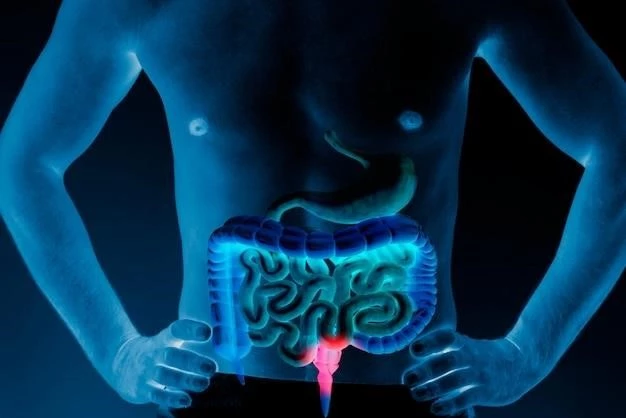Abdominal Pain
Diarrhea
Vomiting
Abdominal Pain
Abdominal pain is a common symptom of mesentery disease, ranging from mild discomfort to severe cramping. It may be constant or intermittent, localized or diffuse.
Diarrhea
Diarrhea, another symptom of mesentery disease, can be frequent, watery, and accompanied by cramping. It may lead to dehydration if not managed promptly.
Vomiting
Vomiting can occur in mesentery disease as the body’s response to stress or inflammation. It may be accompanied by nausea and can lead to electrolyte imbalances if persistent.
Infection
Inflammation
Trauma
Infection
Infections, such as bacterial or viral pathogens, can lead to common mesentery disorders by causing inflammation and compromising the proper function of the mesentery.
Inflammation

Inflammation of the mesentery can result from conditions like Crohn’s disease or infections. It can lead to pain, diarrhea, and other symptoms associated with mesentery disorders.
Trauma
Trauma to the abdomen, such as accidents or injuries, can lead to common mesentery disorders by causing damage to the delicate structures of the mesentery, resulting in inflammation and complications.
Medication
Dietary Changes
Surgery
Medication
Medications like antibiotics or anti-inflammatory drugs are used to manage symptoms and treat underlying causes of common mesentery illnesses, helping alleviate pain and inflammation.
Dietary Changes
Adopting a diet rich in fiber, fruits, and vegetables while limiting processed foods can help alleviate symptoms and promote digestive health in common mesentery conditions.
Surgery
Surgery may be necessary for severe cases of common mesentery diseases to remove damaged tissue, repair complications, or address underlying issues that do not respond to other treatments.
Signs and Symptoms
Diagnosis
Treatment Approaches
Signs and Symptoms
In children, common mesentery diseases may present with symptoms such as abdominal pain, bloating, changes in bowel habits, weight loss, and fatigue, affecting their overall well-being and daily activities.
Diagnosis
Diagnosing common mesentery diseases in children involves physical exams, imaging tests like CT scans, blood tests, and sometimes endoscopy to evaluate symptoms and determine the appropriate treatment plan.
Treatment Approaches
Treating common mesentery diseases in children may involve medication, dietary changes, lifestyle modifications, and in some cases, surgery to manage symptoms and improve overall health and quality of life.
Mesenteric Lymphadenectomy
Mesenteric Bypass Surgery
Resection of the Mesentery
Mesenteric Lymphadenectomy
Mesenteric lymphadenectomy is a surgical procedure that involves removing lymph nodes in the mesentery to aid in the diagnosis and treatment of mesentery-related conditions, such as cancer or infections.
Mesenteric Bypass Surgery
Mesenteric bypass surgery is a procedure used to reroute blood flow around blocked or damaged blood vessels in the mesentery, improving circulation and reducing complications associated with common mesentery disorders.
Resection of the Mesentery
Resection of the mesentery is a surgical procedure that involves removing part of the mesentery affected by disease, aiming to alleviate symptoms, improve function, and prevent complications in common mesentery disorders.
Maintain a Healthy Diet
Regular Exercise
Hygiene Practices
Maintain a Healthy Diet
Eating a balanced diet rich in fruits, vegetables, whole grains, and lean proteins can help prevent common mesentery conditions by supporting overall digestive health and reducing the risk of inflammation.
Regular Exercise
Engaging in regular physical activity can help maintain a healthy weight, improve digestion, and reduce inflammation in the mesentery, lowering the risk of common mesentery disorders and promoting overall well-being.
Hygiene Practices
Good hygiene practices, such as regular handwashing, food safety measures, and avoiding contact with potential pathogens, can help prevent infections and reduce the risk of common mesentery disorders.
Bowel Obstruction
Peritonitis
Sepsis
Bowel Obstruction
Bowel obstruction, a serious complication of common mesentery diseases, can occur due to blockages in the intestines, causing abdominal pain, bloating, constipation, and requiring immediate medical attention.
Peritonitis
Peritonitis, a severe infection of the abdominal lining, can arise as a complication of common mesentery disorders, causing symptoms like severe abdominal pain, fever, and requiring prompt medical treatment to prevent complications.
Sepsis
Sepsis, a life-threatening condition triggered by the body’s response to infection, can develop as a complication of common mesentery diseases, leading to organ dysfunction and requiring immediate medical intervention to prevent adverse outcomes.
Stress Management Techniques
Regular Check-ups
Support Groups
Stress Management Techniques
Implementing stress management techniques like mindfulness, yoga, and deep breathing can help reduce emotional stress levels, which may exacerbate symptoms of common mesentery diseases, promoting overall well-being.
Regular Check-ups
Regular medical check-ups and screenings are important in monitoring common mesentery conditions, detecting any changes early, and discussing treatment options with healthcare providers for better management and outcomes.
Support Groups
Joining support groups or online communities can provide valuable emotional support, information, and encouragement for individuals dealing with common mesentery conditions, fostering a sense of community and shared experiences.
